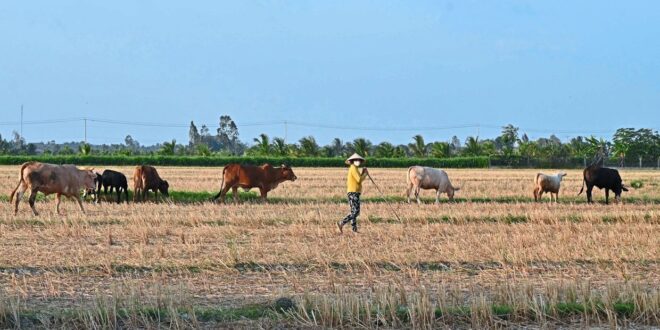HANOI: Four livestock industry associations have proposed the government tighten technical barriers on imported meat to support domestic production which has been struggling with soaring imports in recent years.
In the petition to Prime Minister Pham Minh Chinh, the Animal Husbandry Association of Vietnam, Vietnam Feed Association, Vietnam Ruminant Husbandry Association and Vietnam Poultry Association said it is necessary to tighten management on meat imports through technical standards.
If not, Vietnam might become a huge net importer of meat products in the next three to five years, the organisations said.
Compared to countries with developed animal husbandry or livestock industries, Vietnam’s regulations on meat imports are not strict and have many loopholes. Meanwhile, Vietnam must endure many strict technical barriers when exporting to other countries, making domestic products disadvantaged in their home market, the associations claim.
The associations cited statistics that the imports of livestock products were estimated at US$3.53bil in 2023 while exports was were US$515,000.
Statistics from the Import–Export Department under the Industry and Trade Ministry showed that Vietnam is importing meat and meat products from 37 countries, of which India is the largest supplier, accounting for 29.53%.
Customs statistics showed that Vietnam imported nearly 62,440 tonnes of meat worth US$127.52mil in January, up 76.2% in volume and 72% in value compared with the same period last year.
The soaring imports (both official and unofficial) not only weigh on domestic production but also cause risks to food quality and safety.
Nguyen Van Thao, director of Thao Thanh Cooperative in Bac Giang Province which has a herd of 1,000 pigs, said that his cooperative did not dare to expand production over worries about price fluctuations, diseases, and harsh competition from imported products.
“Many customers complained that our prices are higher than imported frozen products,” he said.
At the current rate, Vietnam will become a net importer of livestock products in the next three to five years when tariffs are removed under free trade agreements, the associations warned.
The associations said it is necessary to erect technical barriers and increase quarantine measures and quality control to tighten the import of live animals and livestock products into Vietnam.
The associations also urged efforts to prevent the illegal import of livestock and poultry via border gates, which should be implemented via a ban, because domestic production could basically meet the demand.
Previously, Dong Nai Husbandry Association said that with hog prices of around 50,000 dong per kilogramme, farmers in Vietnam are suffering losses. — Viet Nam News/ANN
 BeritaKini.biz Berita Viral Terkini di Malaysia
BeritaKini.biz Berita Viral Terkini di Malaysia





